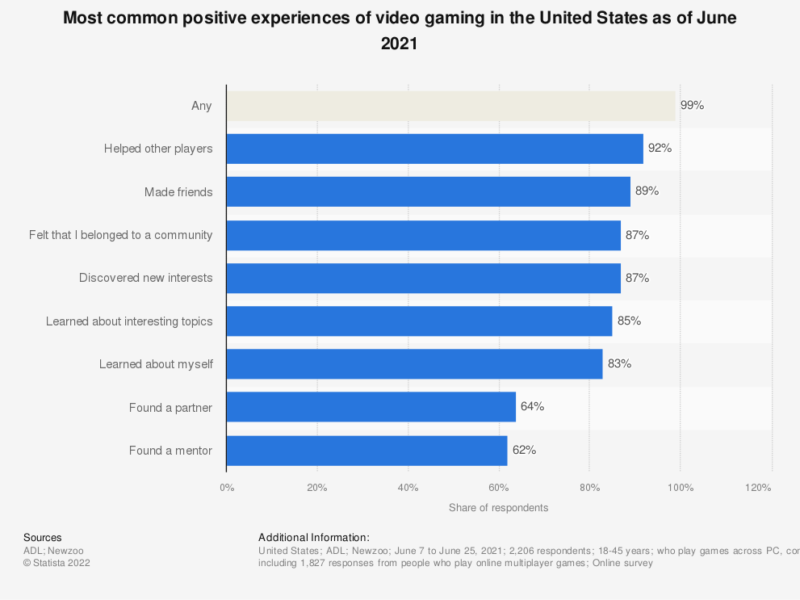The Evolution of Online Games
From simple text-based games to immersive virtual worlds
From simple text-based games to immersive virtual worlds, the evolution of online games has been nothing short of remarkable. In the early days, players were limited to basic text commands and pixelated graphics, but as technology advanced, so did the gaming experience. The introduction of graphical user interfaces and multiplayer capabilities opened up a whole new world of possibilities, allowing players to interact with each other in real-time. Today, online games have reached unprecedented levels of realism and immersion, thanks to cutting-edge graphics, virtual reality technology, and complex gameplay mechanics. Players can now explore vast open worlds, engage in epic battles, and even create their own virtual lives. The rise of online games has truly revolutionized the gaming industry, captivating millions of players worldwide and cementing their place as a dominant force in the entertainment world.
The impact of technology on the development of online games
The impact of technology on the development of online games has been nothing short of revolutionary. With the rapid advancements in computer processing power, graphics capabilities, and internet connectivity, online games have evolved from simple text-based adventures to immersive virtual worlds that can be accessed by millions of players simultaneously. The introduction of high-speed internet connections and the widespread availability of smartphones and tablets have further fueled the growth of online gaming, making it more accessible and convenient than ever before. Additionally, technological innovations such as cloud gaming and virtual reality have pushed the boundaries of what is possible in online gaming, offering players unprecedented levels of immersion and interactivity. As technology continues to advance, it is certain that online games will continue to evolve and captivate players worldwide.
The rise of multiplayer online games
The rise of multiplayer online games has revolutionized the gaming industry, captivating millions of players worldwide. These games have transformed the way people connect and interact with each other, creating virtual communities that transcend geographical boundaries. With the advent of high-speed internet and advanced gaming platforms, multiplayer online games have become more immersive and engaging than ever before. Players can now team up with friends or compete against strangers in vast virtual worlds, offering endless possibilities for exploration, collaboration, and competition. The rise of multiplayer online games has not only provided entertainment but has also fostered social connections and friendships, making it a truly transformative phenomenon in the gaming world.
The Popularity of Online Gaming
The global reach of online gaming
The global reach of online gaming has revolutionized the way people from all corners of the world connect and interact through virtual platforms. With the advent of high-speed internet and the proliferation of smartphones, online games have transcended geographical boundaries, allowing players to engage in multiplayer experiences with individuals from different countries and cultures. This global connectivity has not only fostered a sense of camaraderie among gamers but has also opened up opportunities for cross-cultural exchanges and collaborations. As a result, online gaming has become a powerful tool for promoting cultural diversity and understanding, as players from diverse backgrounds come together to share their passion for gaming and forge lasting friendships. The global reach of online gaming has truly transformed the gaming world, making it a truly global phenomenon.
The appeal of online gaming for different age groups
The appeal of online gaming spans across different age groups, captivating both the young and the old alike. For children and teenagers, online games offer a sense of adventure and excitement, allowing them to explore virtual worlds, engage in thrilling quests, and connect with friends in a dynamic and interactive environment. The competitive nature of online gaming also appeals to the younger generation, as they can test their skills against players from around the world, fostering a sense of achievement and camaraderie. On the other hand, for adults, online gaming provides a much-needed escape from the stresses of everyday life, offering a chance to unwind and immerse themselves in captivating narratives and immersive gameplay. Additionally, online gaming serves as a social platform for adults, enabling them to connect with like-minded individuals, form communities, and engage in cooperative gameplay experiences. Regardless of age, the allure of online gaming lies in its ability to transport players to new realms, foster social connections, and provide an exhilarating and engaging form of entertainment.
The social aspect of online gaming
The social aspect of online gaming has revolutionized the way people connect and interact with one another in the gaming world. With the rise of online games, players now have the opportunity to join virtual communities, form friendships, and engage in cooperative gameplay with individuals from all around the globe. Online gaming platforms provide a space for players to communicate through chat features, voice chats, and even video calls, fostering a sense of camaraderie and teamwork. Additionally, the emergence of social media integration within these games allows players to share their gaming experiences, achievements, and strategies with their online friends, further enhancing the social aspect of the gaming experience. The social element of online gaming has not only brought people together but has also created a vibrant and inclusive community that transcends geographical boundaries.
The Business of Online Gaming
The economic impact of online gaming
The economic impact of online gaming has been nothing short of remarkable. With the rapid growth and popularity of online games, the gaming industry has experienced a significant boost in revenue. Online gaming has created numerous job opportunities, from game developers and designers to professional gamers and streamers. Additionally, the rise of online gaming has led to the emergence of a thriving market for virtual goods and in-game purchases, generating substantial revenue for game developers and publishers. Moreover, online gaming has also contributed to the growth of the e-sports industry, with tournaments and competitions attracting millions of viewers and generating substantial sponsorship and advertising revenue. Overall, the economic impact of online gaming has been transformative, revolutionizing the gaming industry and creating a lucrative market that continues to expand and evolve.
The monetization strategies of online game developers
The monetization strategies employed by online game developers have played a significant role in the industry’s growth and success. One common approach is the implementation of in-app purchases, where players can buy virtual goods or additional features within the game. This strategy not only generates revenue for developers but also enhances the gaming experience by offering players the opportunity to personalize their gameplay. Another popular method is the use of advertisements, where developers partner with brands to display ads during gameplay. While this can be a source of income, it is crucial for developers to strike a balance between ad frequency and user experience to avoid alienating players. Additionally, some online game developers offer subscription-based models, granting players access to exclusive content or perks in exchange for a recurring fee. These monetization strategies have proven to be highly effective, allowing developers to continue creating and improving online games while ensuring a sustainable business model.
The emergence of professional online gaming
The emergence of professional online gaming has revolutionized the gaming industry, transforming it into a legitimate and lucrative career path. With the rise of competitive online games such as League of Legends, Dota 2, and Counter-Strike: Global Offensive, talented players now have the opportunity to showcase their skills on a global stage. Professional online gaming has attracted a massive following, with millions of viewers tuning in to watch tournaments and championships. These events offer substantial prize pools, sponsorships, and endorsement deals, making it possible for players to earn a substantial income solely through their gaming prowess. As a result, the perception of gaming has shifted from a mere hobby to a legitimate profession, attracting a new generation of aspiring professional gamers.
The Benefits of Online Gaming
Enhancing cognitive skills through online gaming
Enhancing cognitive skills through online gaming
Online gaming has emerged as a powerful tool for enhancing cognitive skills in individuals of all ages. Engaging in these games requires players to think critically, strategize, and make quick decisions, thereby stimulating their cognitive abilities. Research has shown that certain types of online games, such as puzzle-solving or strategy-based games, can significantly improve problem-solving skills, memory retention, and multitasking abilities. Additionally, online gaming provides a platform for individuals to develop their hand-eye coordination and spatial awareness, as many games require precise movements and navigation through virtual environments. With the rise of online gaming, individuals now have an entertaining and effective means to enhance their cognitive skills while immersing themselves in a virtual world of endless possibilities.
The therapeutic effects of online gaming
The therapeutic effects of online gaming have been increasingly recognized in recent years. Engaging in online games can provide individuals with a much-needed escape from the stresses of everyday life, offering a virtual world where they can immerse themselves in exciting adventures and challenges. For many, online gaming serves as a form of relaxation and a means to unwind, allowing them to temporarily forget about their worries and responsibilities. Moreover, online gaming has been found to have positive effects on mental health, as it can improve cognitive skills, enhance problem-solving abilities, and boost creativity. Additionally, online gaming often fosters social connections, providing a sense of community and belonging for individuals who may feel isolated or lonely. Overall, the therapeutic benefits of online gaming make it a valuable tool for improving well-being and enhancing one’s overall quality of life.
Online gaming as a tool for education
Online gaming has not only revolutionized the entertainment industry but has also emerged as a powerful tool for education. With the ability to engage and captivate players, online games have found their way into classrooms and learning environments, offering a unique and interactive approach to education. Through gamification, students can acquire knowledge and skills in a fun and engaging manner, making the learning process more enjoyable and effective. These educational games often incorporate elements of problem-solving, critical thinking, and collaboration, fostering important skills that are essential for success in the modern world. Moreover, online gaming provides a platform for students to explore various subjects and concepts in a hands-on and immersive way, allowing them to apply their knowledge in practical scenarios. As technology continues to advance, the integration of online gaming in education holds immense potential to transform traditional teaching methods and create a more dynamic and engaging learning experience for students.
The Challenges of Online Gaming
The issue of addiction and excessive gaming
The issue of addiction and excessive gaming has become a growing concern in recent years. With the rise of online games, individuals of all ages are finding themselves increasingly immersed in virtual worlds for extended periods. This addictive behavior can have detrimental effects on various aspects of a person’s life, including their physical and mental health, relationships, and overall well-being. Studies have shown that excessive gaming can lead to social isolation, sleep disturbances, poor academic or work performance, and even financial problems. As the popularity of online games continues to soar, it is crucial for individuals, families, and society as a whole to address this issue and promote responsible gaming habits to ensure a healthy balance between virtual and real-life experiences.
The impact of online gaming on physical health
The impact of online gaming on physical health has been a topic of concern in recent years. While online games offer a convenient and accessible form of entertainment, excessive gaming can lead to a sedentary lifestyle and a lack of physical activity. Prolonged periods of sitting and staring at screens can contribute to various health issues, including obesity, musculoskeletal problems, and poor posture. Additionally, the addictive nature of online gaming can lead to irregular sleep patterns and neglect of other essential activities such as exercise and proper nutrition. It is crucial for individuals to find a balance between their online gaming activities and maintaining a healthy lifestyle to mitigate these potential physical health risks.
The potential risks of online gaming
The potential risks of online gaming should not be overlooked, as they can have significant consequences on individuals and society as a whole. One major concern is the addictive nature of online games, which can lead to excessive screen time and neglect of other important aspects of life, such as work, relationships, and physical health. Additionally, online gaming can expose players, especially children and teenagers, to various forms of cyberbullying, harassment, and inappropriate content. Moreover, the anonymity provided by online platforms can facilitate the spread of toxic behavior and encourage unethical practices, such as cheating and hacking. It is crucial for both players and game developers to be aware of these risks and take necessary measures to ensure a safe and responsible gaming environment.
The Future of Online Gaming
The integration of virtual reality in online gaming
The integration of virtual reality (VR) in online gaming has revolutionized the way players experience and interact with virtual worlds. With the advent of advanced VR technology, gamers can now immerse themselves in incredibly realistic and immersive environments, blurring the lines between the real and virtual worlds. By wearing a VR headset, players can explore vast landscapes, engage in thrilling battles, and interact with other players in a whole new dimension. The integration of VR in online gaming has not only enhanced the overall gaming experience but has also opened up new possibilities for game developers to create innovative and captivating gameplay mechanics. As VR technology continues to evolve, we can expect even more exciting advancements in online gaming, further solidifying its position as a dominant force in the gaming world.
The potential for cross-platform gaming
The potential for cross-platform gaming is immense, as it allows players to connect and compete with others regardless of the device they are using. This trend has revolutionized the gaming world, breaking down barriers and creating a more inclusive and interconnected gaming community. With cross-platform gaming, players can seamlessly switch between consoles, PCs, and even mobile devices, ensuring that they never miss out on the action. Furthermore, it opens up new possibilities for game developers, who can now create games that cater to a wider audience and provide a more immersive and engaging experience. As technology continues to advance, the potential for cross-platform gaming will only grow, further solidifying its place as a dominant force in the gaming industry.
The role of artificial intelligence in online gaming
The role of artificial intelligence (AI) in online gaming has revolutionized the way games are played and experienced. AI technology has enabled game developers to create more immersive and realistic virtual worlds, as well as enhance the gameplay itself. AI algorithms can now generate intelligent and adaptive non-player characters (NPCs) that can react and respond to player actions in real-time, providing a more challenging and dynamic gaming experience. Additionally, AI-powered systems can analyze player behavior and preferences, allowing for personalized game recommendations and tailored gameplay. With the continuous advancements in AI, the future of online gaming holds even more exciting possibilities, including the potential for AI to create entirely new game experiences that were previously unimaginable.


